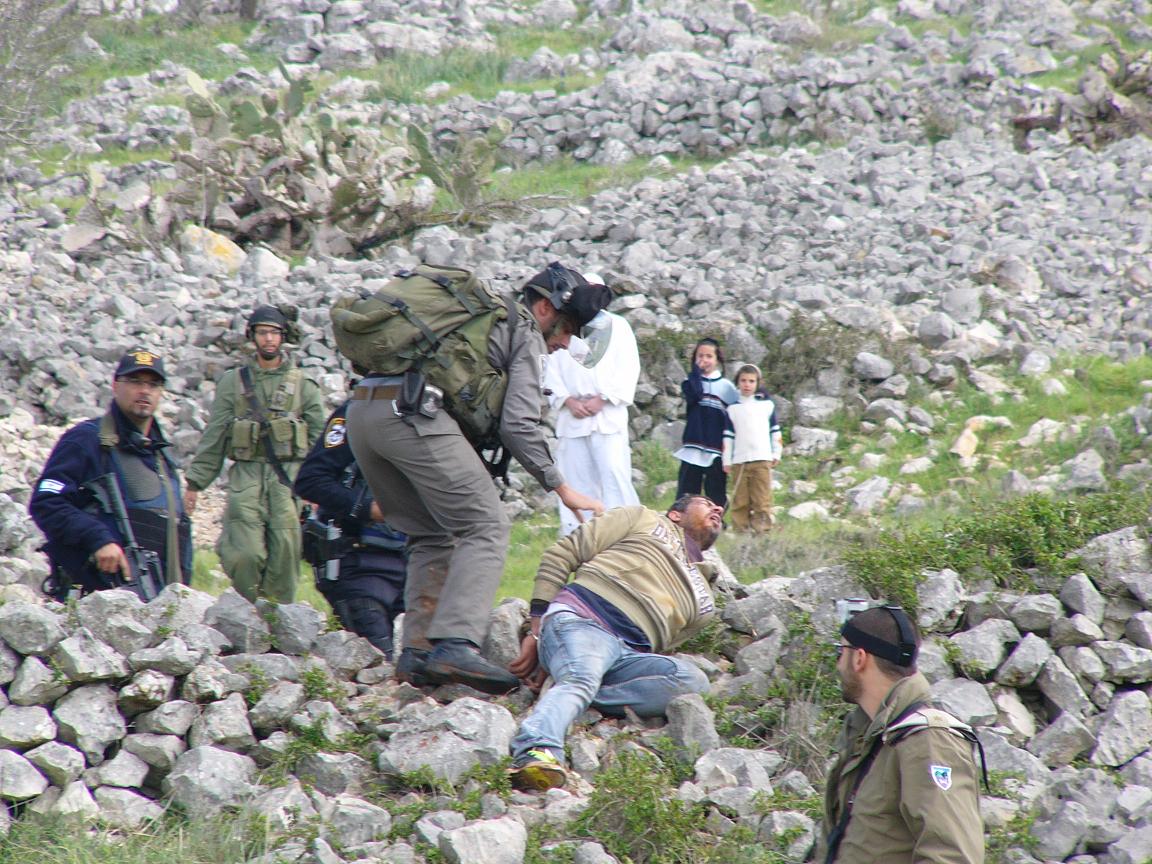Tag: Al Manatir
-
A 21 year-old man arrested in Burin. Repression intensifies
16th March 2013 | International Solidarity Movement, Occupied palestine On the night of the 12th March, Israeli forces invaded the village of Burin and arrested a 21 year-old man in his house. This arrest is part of a wave of arrests and repression of the village by Israeli forces since al-Manatir neighbourhood was established on a…
-
Trial delayed for the Al-Manatir three
06 February 2013 | International Solidarity Movement, Occupied Palestine Three Palestinians are still being held in detention following last Saturday´s Al-Manatir protest camp in Burin. The three of them are suspected of participating in a march without permission as well as throwing stones. The two adults, Wahid Qadoos and Ashraf Abu Rahma, are also facing…
-
Al-Manatir: the protest village in occupied territory that was destroyed before it was built
4 February 2013 | Mondoweiss Saturday morning moments after Palestinians planted metal huts and canvas tents on a rocky hilltop in the northern West Bank village of Burin, Israeli settlers were pelting them with rocks. Armed with slingshots and at least one gun the settlers stormed the Palestinians who were setting up a protest encampment…

